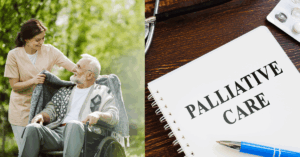Knowledge Is Power
Did you know that between 50% -70% of persons with AOD have trouble sleeping? It was discovered that there are two poignant issues with this problem. Number one, sleep deprivation speeds up the development of Amyloid plaques in the brain. These are the plaques that contribute to dementia. While sleep disturbances for persons with AOD also spells out sleep troubles for their caregivers. Does this sound like a vicious cycle? It is, and the worse part about sleep problems is, it’s caulked up to being a normal part of aging – when it is not!
Promoting Awareness
You can click on the above link provided to read the full study, and click the link to show the summarized image in PDF of the study.
Stay tuned for our next blog, which explores non-pharmacological therapies that will help caregivers ensure a better sleep for adults with AOD.
Personalized Dementia Solutions




2 Responses
You will find two poignant difficulties with this issue, lack of sleep accelerates the introduction of Amyloid plaques within the brain – fundamental essentials plaques that lead to dementia, and sleep disturbances for persons with AOD also spells sleep troubles for his or her care providers.
personalize songs
Hi Suzi,
Thanks for reiterating these two main points about how lack of sleep can affect individuals with dementia and also their caregivers.
My guess is your work as a singer/songwriter in New York has exposed you to those sadly affected by dementia such as Alzheimer’s disease. Music is magical for all…including those with deteriorating memories.
Keep up the great work you do!
Warm regards,
Karen 🙂